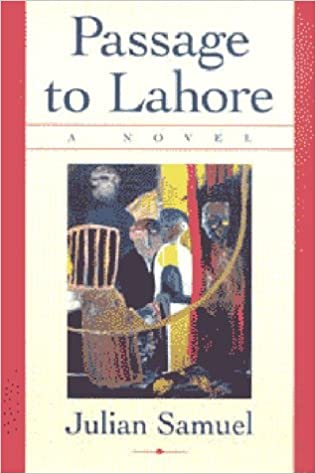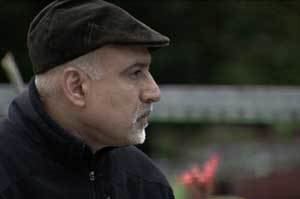Passage to Lahore: A Novel
Julian Samuel
|
|
A self-defined Marxist Pakistani-British-Canadian Montrealer, Julian Samuel is an author, film-maker and video producer whose work explores real and imaginary borders, the clash of cultures and issues of identity in a post-colonial world. His episodic protest novel, Passage to Lahore, (Mercury Press, 1995), and his other writings needle and provoke the reader by their restless tone and subversive content. But in person (we met at a St. Denis St. café on a balmy day in early spring), Samuel is a bundle of contradictions: accommodating and modest, openly inviting of criticism, then launching himself on a rant on the subject of Quebec nationalism, one of the subjects that most persistently attracts his considerable powers of barbed invective in the novel.
As much a collection of ironic personal essays as a novel in the conventional sense, Passage to Lahore has as its protagonist a character similar in his vital statistics to the author. Both are called Julian, and were born in Lahore, the second largest city in Pakistan, in 1952. Passage to Lahore attacks the racist undercurrents of the places where Samuel has lived since leaving Pakistan in 1958 (England, Scotland, Ontario and Quebec) without for a moment glorifying his native land. The grandson of a writer of technical drawing textbooks (his grandfather “was sort of James Joyce of the drafting textbook world in post-partition Pakistan,” he writes in the evocative chapter, Grandfather at Noon), Samuel was sensitized to the idea of minority status early in life. Originally of Sikh and Jain background, the family had converted to Christianity and Samuel attended private Catholic English schools in Lahore. “There were all degrees of minoritization in that we were Christians in a Muslim state,” he told me. Whereas Punjabi was the majority language, we were an Urdu-speaking family living in Lahore, which is the capital of Punjab.” Samuel is loath to ascribe discrimination toward the Christian minority in Lahore as the main reason that his family left. “The first reason would be the ‘American Dream,’ of actually acquiring an affluent, modern lifestyle in the West. And I’m sure that the valid excuse of being a Christian minority in an Islamic state fuelled the desire to leave….And judging by the face of contemporary Pakistan now, it was probably a good idea that we left the homeland because there is frightfully little tolerance for any minority (today).” Decrying modern Pakistan’s treatment of Hindus, Buddhists, Sikhs, Shi’a Muslims, as well as Christians, Samuel becomes eloquently passionate. “It’s a dream of independence gone all bizarrely wrong, it just seems like a strange irremovable tumour from my life that I can’t get rid of. Here in Quebec again the filthy little word ‘partition’ has cropped up. And it is the most violent word in the English language!” Despite his frustrations over trying to get funding for his projects in Quebec and his diatribes against what he calls Quebec’s program of “radical provincialism,” when asked about “home,” Samuel categorically states that it is Montreal. “I love this city… it’s a wonderful city. It’s the cheapest city in the world. If you were to live in Calcutta in rupees, it would be more expensive than here….This is a most manageable city, a cosmopolitan city where I live in three languages – Urdu, English and French – every day of my life.” Anger leavened by humour drives Samuel’s writing. “Anger by itself is cynical and nasty and unproductive. But anger with a sense of humour and sarcasm is a survival strategy. I’d much rather be less angry. But living here in Montreal one has an unlimited supply of fuel to keep one bubbling until well into the middle of the next century. One gets frightfully cynical living here as a minority.” Samuel is currently at work on both a screenplay and a new novel called The Entanglement (Fatwah). Set in the near future, it’s a comic satire loosely based on the Salman Rushdie affair. Passage to Lahore has recently been translated into French and is published by Les Editions Balzac. Elaine Kalman Naves
|


